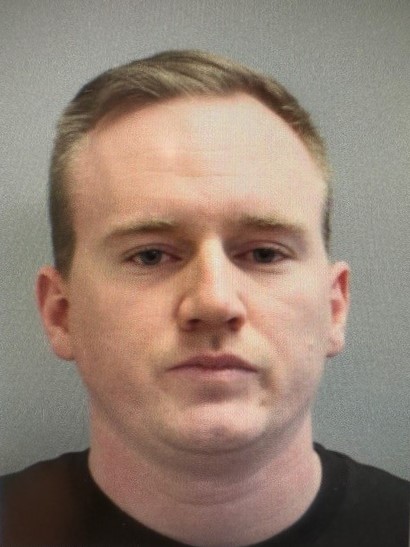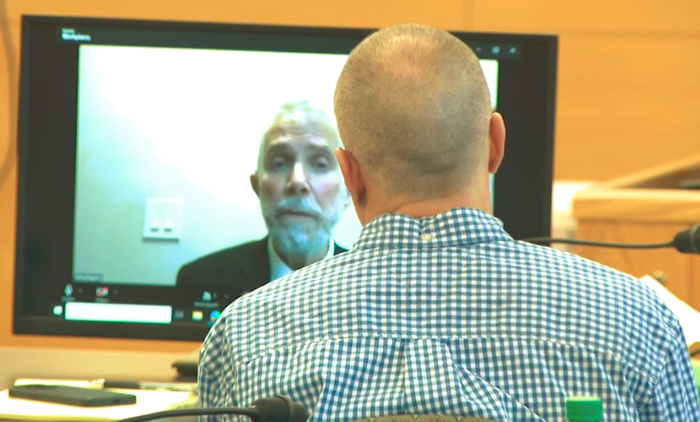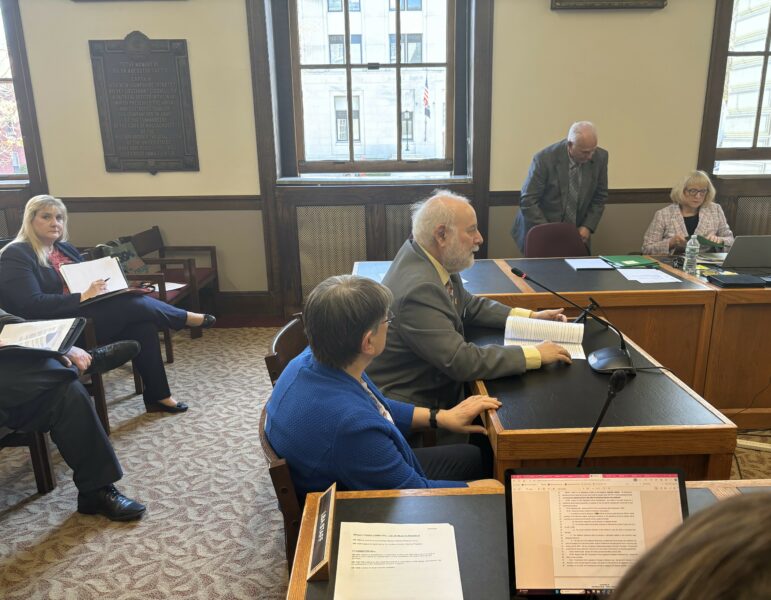By NANCY WEST, InDepthNH.org
CONCORD – The state Supreme Court upheld an order denying Volodymyr Zhukovskyy’s third motion for an evidentiary bail hearing in connection with manslaughter and negligent homicide charges in the Randolph crash in which seven members of the Marine veterans’ Jarheads Motorcycle Club were killed.
In an order written by Associate Justice James Bassett, the court ruled Thursday that state law, specifically RSA 597:2, III-IV, doesn’t require such a hearing, backing Judge Peter Bornstein’s denial. Justices Gary Hicks, Anna Barbara Hantz Marconi and Patrick Donovan concurred.
Bassett wrote: “(The law) does not require the trial court to hold an evidentiary hearing when the parties dispute facts relevant to dangerousness, and that the trial court sustainably exercised its discretion when it denied the defendant’s motion, we affirm.”
The decision recounted the facts of the case in which Zhukovskyy, 25, who has been jailed since shortly after the June 21, 2019, crash, was driving a Dodge Ram 2500 truck with attached trailer when it collided with the motorcyclists, killing seven people and seriously injuring another.
The crash shocked the small White Mountains community of Randolph in Coos County and drew reaction across the state as more details emerged about Zhukovskyy’s driving record and details of the crash, including later when his defense contested state evidence as to fault.
The crash also prompted changes in how fast Massachusetts and New Hampshire notify other states about driver’s license infractions.
In March, Zhukovskyy was reindicted on the manslaughter, negligent homicide, negligent homicide — DUI, and reckless conduct charges, and the trial court issued a new bail order continuing Zhukovskyy’s preventive detention due to his dangerousness, Bassett wrote.
In March 2020, based on new evidence that the state had provided in discovery, Zhukovskyy filed a motion for an evidentiary bail hearing, arguing that the court should hold an evidentiary hearing on the continuing need for preventive detention, Bassett wrote.
“He further contends that, because the parties disputed numerous facts germane to these three factors — including who caused the initial impact and whether the defendant was impaired at the time — the trial court erred when it declined to hold an evidentiary hearing to resolve those material factual disputes,” Bassett wrote.
The ruling took note of the state’s counter argument that trial court’s decision “was sustainable based on the undisputed facts relating to the defendant’s history of substance use, his prior convictions, the fact that he had been released on bail for a pending DUI charge at the time of the collision, and the nature of the charged offenses. We agree with the state,” Bassett wrote.
Bassett said the most recent motion for a bail hearing was “based primarily that the justifications for continued preventive detention were undermined by the passage of time, occasioned by delays in scheduling trial, as well as updates to the state’s crash report and other discovery, which, the defendant contended, weakened the state’s case against him.”





